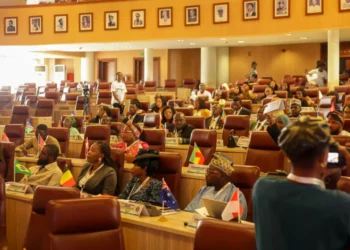Namibia’s ruling SWAPO party has emerged victorious in the recent elections, paving the way for Vice-President Netumbo Nandi-Ndaitwah to become the country’s first female president. She secured 57% of the vote, while Panduleni Itula of the opposition Independent Patriots for Change (IPC) trailed with 25.5%, according to the Electoral Commission of Namibia (ECN).
Nandi-Ndaitwah, 72, will lead the mineral-rich nation, which has been under SWAPO’s governance since its independence from South Africa in 1990. Her victory comes amidst challenges for the liberation-era party, as younger voters increasingly focus on issues like unemployment and inequality rather than historical loyalties.
Election Disputes and Delays
The November 27 election was extended to November 30 due to logistical issues, including ballot shortages and technical failures. These disruptions led to long waits at polling stations, with some voters abandoning the process. The IPC alleged deliberate voter suppression and vowed not to recognize the results, citing “irregularities” and pledging legal action.
Challenges Ahead
Namibia faces significant socioeconomic challenges, with youth unemployment estimated at 46%. Despite its wealth in uranium and diamonds, many of the country’s nearly three million citizens see little benefit in terms of infrastructure or job creation.
Nandi-Ndaitwah, a veteran SWAPO leader, has promised to tackle these issues by fostering investment and pursuing “economic diplomacy.” Recognizable for her gold-framed glasses and often clad in SWAPO’s colors, she aims to unite the nation despite political tensions.
SWAPO also secured a majority in the national assembly, though its representation dropped to 51 seats from 63 in the previous term.
As Namibia’s first female leader, Nandi-Ndaitwah joins a small group of women heads of state in Africa, marking a historic moment for the country.









